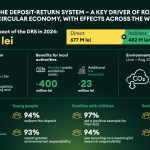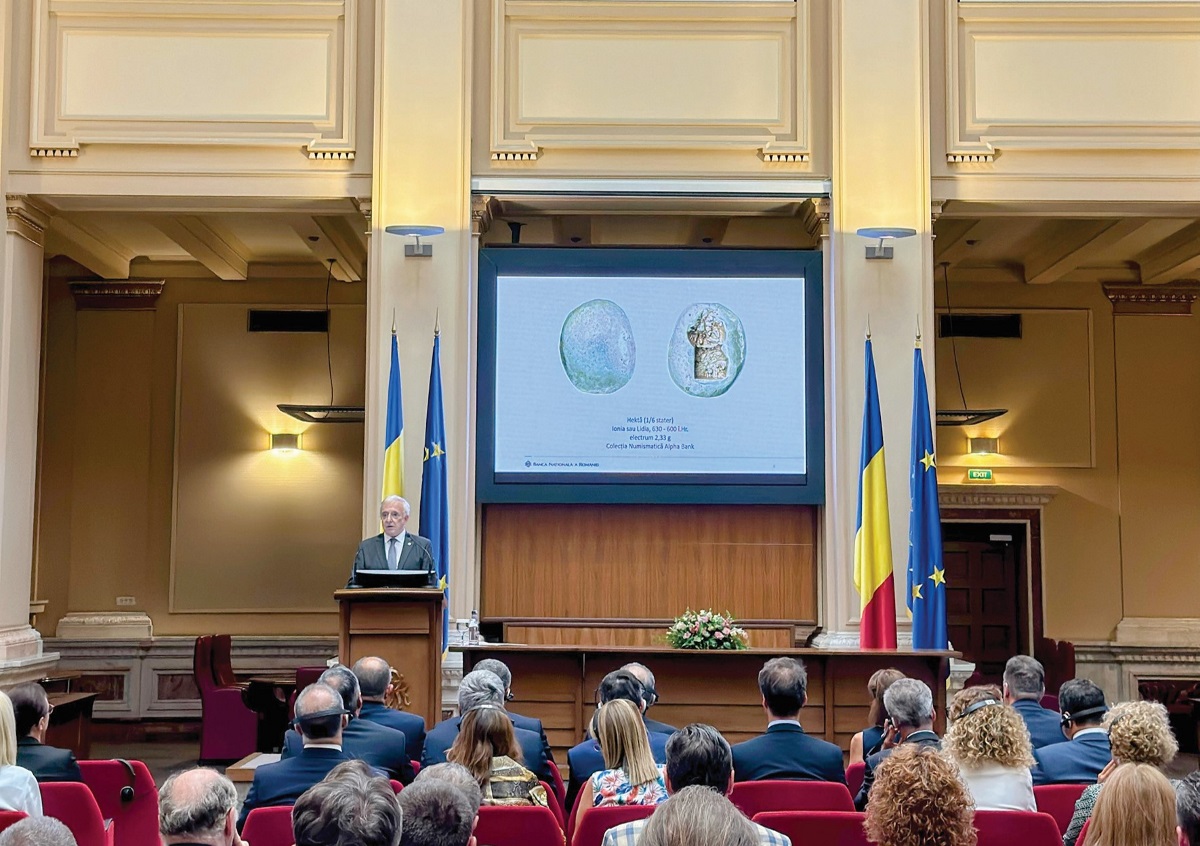
Economic growth can fail because of the national decrepitude
Foto: volodymyr.martyn / depositphotos.com
For many years, consumption has been the safety parachute for Romania’s continuous economic growth. The GDP’s important advance recorded until the beginning of the pandemic and the introduction of the lockdown could have been a valuable „legacy” at the heart of a rapid economic recovery and sustainable development. But even before the economic fall, caused by the Covid-19 pandemic, Romanian economy’s „flight” was menaced by the „thinness” of its economic model.
I have already written about how we fell into the trap of the economic crisis by carrying with us the burden of some major deficits: budgetary deficit, current account deficit, labour force deficit, infrastructure deficit, the deficit of professional training correctly adapted to the necessities of the “new economy”, trust deficit, development deficit compared to other EU Member states. The growth model makes all the difference, and the acceleration of the consumption while lacking investments cannot lead to a healthy economic recovery and a solid foundation for sustainable development. The government from Bucharest bets a lot (maybe too much) on the achievement of some macroeconomic figures and on the few thousand billion euros that we would get from the European Union based on the Recovery and Resilience National Plan. The draft budget for 2021 is set up on an economic growth of 4.3% for 2021, with a peak in 2023 of 5%, significantly higher than the European forecast. For 2021, investments have been estimated at 5.5% of the GDP, 8.3 billion lei higher than in 2020 (when there had been 53.08 billion lei or 5.1% of the GDP), and out of the total investments, 32.1 billion lei represent European funds with the remaining 29.3 billion lei from national funds. The government is promising massive investments to ensure solid economic growth which eliminates the danger of a deceiving economic rebound based only on consumption. Nevertheless, with the rollout of the national vaccination campaign and lifting the restrictions imposed by the fight against the pandemic, it is expected that private consumption reverts at a strong pace during the second half of 2021. Furthermore, investments will remain solid despite the forecast, backed by the construction sector and it is expected that exports recover due to the improvement of the economic conditions of Romania’s main trade partners.
But the most important threat faced by the private, entrepreneurial or multinational economy today is the labour force shortage. Romania is constantly losing labour force, because of its migration (it is true, currently limited by the pandemic restrictions), and because of the population’s constant aging, and because the offer does not keep up with the needs continuously changing of the economy. Aware of the everyday shortcomings, we lose sight of the threats related to the future. We live on loans without offering any guarantee that we will ever reimburse the credit. Moreover, we have been spending in present for already too long, the money to be earned by future generations. And according to scientific data, the spending generation is far higher in number than the generation remaining in the country to pay our debts. The Romanian nation is poorer by the day. But the tragedy is that besides money and prosperity we also lose children, the nation is getting thinner and older.
According to Eurostat, Romania will suffer a dramatic depopulation by 2100. Our country will have 6.6 million people less than today, and the main causes of this depopulation are natural decrease and external migration. In a report from November last, the National Statistical Institute showed that the country’s population could be halved in the next 50 years. Thus, we live with the burden of an accelerated negative demographic pace that could seriously harm the nation’s welfare. The population’s decline and aging will impact massively the economy with effects on the structure of the state and its administration. For instance, a smaller population requires a lower number of parliament members and public servants as well as fewer professors, doctors, police officers or soldiers. But also, fewer entrepreneurs generating jobs, suppliers of products and services, and fewer consumers and beneficiaries of these goods and services.
The factors determining a country’s economic growth are natural resources (land, minerals, fuels, environment’s quality), capital formation (installations, factories, transport infrastructure), technology (science, engineering, management, entrepreneurship), and human resources (labour force, job offers, the level of education and training, discipline, motivation). Furthermore, economic growth is influenced among other factors by the size of the aggregated demand, domestic market’s capacity to absorb, labour force and capital migration, but also by the state’s budgetary and fiscal policies. The decrease of the labour force (caused by both negative demographic pace and external migration) leads by itself to a consumption decrease. Also, the state’s economic power is under additional pressure: budgetary revenues dramatically decrease (fewer active persons to pay income taxes and other types of taxes; and the volume of taxation on consumption reduces – VAT) while the pressure on the public budget increases.
Unfortunately, from a demographic as well as from an economic point of view, Romania risks another national decrepitude. But none of us seem to be concerned about this, as nobody can tell how Romania will look like in 2060. We hope for economic growth, but we fail to realise that we don’t have the means. We have daily discussions about the economy based on consumption, about budgetary deficits, about the trade balance, the Romanian economy’s competitiveness, about the need to have strategic investments. But I do not see anywhere public policies capable to pull Romania from under the burden of its greatest threats: the depopulation, the population’s decrepitude.
Daniel Apostol
Share
Share















